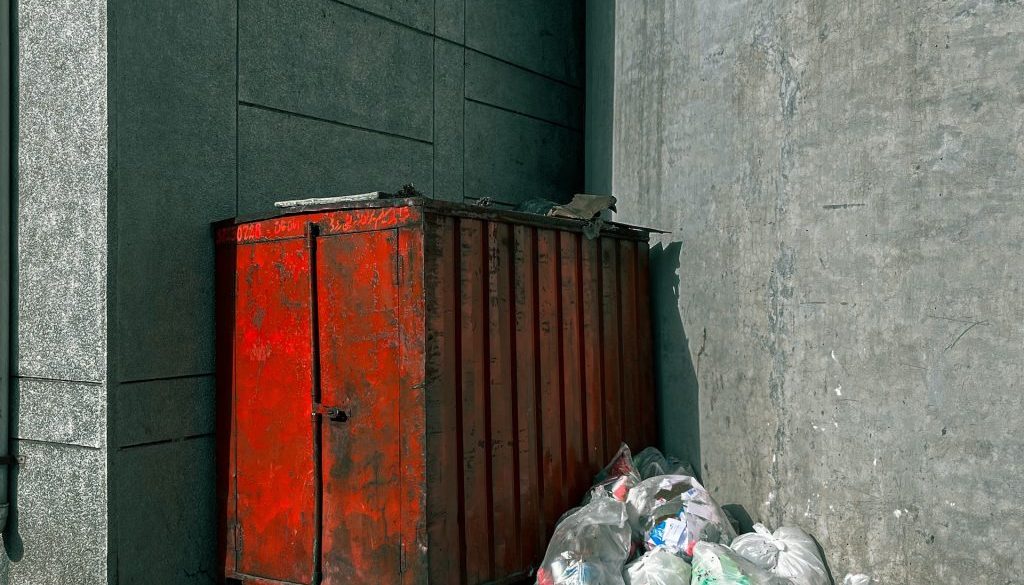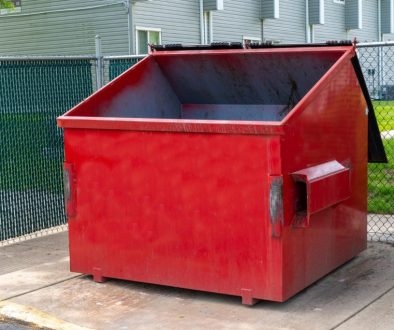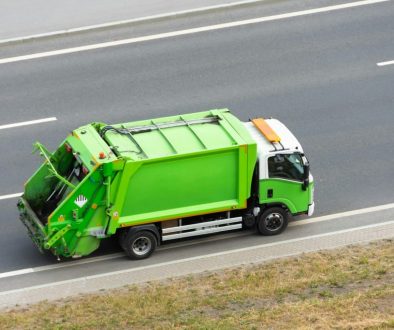Waste management is an essential issue in the UK, and commercial skips are vital in waste disposal. Commercial skips are containers that collect and transport waste from construction sites, commercial properties and other locations.
In this article, we will explore the different types of waste that can be disposed of in commercial skips and the regulations and laws surrounding waste disposal.
What Are the Types of Commercial Skips?
Here are the common types of commercial skips that businesses can use:
Enclosed Skips
These skips are designed to be fully sealed, with a hinged lid and lockable doors so that no-one can access the waste in transit. This is particularly useful for disposing of hazardous materials, as it ensures that the rubbish is not spilt or tampered with during transit.
Roll On-Off Skips
Roll on-off skips are large skips that can be loaded onto a truck and transported to a disposal site. They are ideal for businesses that produce large amounts of waste, as they can hold up to 40 cubic yards.
Recycling Skips
These skips are designed to dispose of recyclable materials like paper, cardboard, glass and plastic. They are usually smaller than other skips and can be used with a larger skip to separate recyclable materials from non-recyclable ones.
The best way to determine which type of skip is right for you is to assess your waste disposal needs and then choose the size and type that best meets those needs.
What Are the Types of Wastes Accepted in Commercial Skips?
Commercial skips can dispose of a wide range of waste materials. However, it is essential to note that some types of waste require specialised disposal methods, and some regulations and laws must be followed.
General Waste
It includes non-hazardous materials such as paper, cardboard, plastic and wood. General rubbish can be disposed of in open or enclosed skips, depending on the amount needed.
Construction and Demolition Waste
This includes building materials such as metals, concrete, bricks and other wastes produced during construction and demolition projects. It is essential to properly dispose of construction and demolition rubbish, as it can contain hazardous materials that can harm the environment if not disposed of properly.
Hazardous Waste
Chemicals, asbestos and medical waste are examples of hazardous waste. Toxic wastes must be discarded in enclosed skips made particularly for that purpose.
Green Waste and Garden Waste
Green and garden waste includes leaves, branches and grass clippings. This waste can be disposed of in open skips and recycled into compost or mulch.
Electrical Waste
Computers, televisions and other electronic devices are considered as electrical waste. This type of waste must be disposed of under the Waste Electrical and Electronic Equipment (WEEE) Regulations, which require that electrical waste be taken to a licensed waste disposal facility for processing.
Household Waste
Food scraps, paper and plastic are examples of household rubbish. Depending on how much waste needs to be disposed of, this type of waste can be disposed of in either open or enclosed skips, or, in the case of food waste, straight into your household wheelie bin.
Commercial Waste
Rubbish created by businesses, such as paper, cardboard and plastic, is referred to as commercial waste. Depending on how much rubbish needs to be disposed of, this type of waste can be disposed of in either open or enclosed skips.
Regulations and Laws on Waste Disposal
The UK has several laws and regulations to ensure waste’s safe and legal disposal. These laws and regulations are in place to protect the environment and public health and ensure the efficient and cost-effective removal of waste.
The regulations are based on the European Union’s Waste Framework Directive, which sets out the legal requirements for the safe and environmentally-sound disposal of waste. The UK’s waste regulations are implemented and enforced by the Environment Agency.
The primary law governing waste disposal is the Environmental Protection Act of 1990. This Act sets out the legal requirements for removal, including the need to obtain a permit to dispose of certain types of hazardous waste and keep records of waste disposal.
The UK also has laws to ensure the safe disposal of certain types of waste. For example, the Hazardous Waste Regulations 2005 outlines the requirements for the safe disposal of hazardous waste, including the need to keep records of disposal and the need to obtain a permit for the disposal of certain types of hazardous waste.
In addition to these laws, many regulations are in place to ensure the efficient disposal of waste. For example, the Waste (England and Wales) Regulations 2011 sets out the requirements for collecting and disposing household rubbish, including ensuring that rubbish is collected and disposed of safely and responsibly.
Lastly, there is also a directive to encourage the reuse and recycling of waste. For example, the Waste Electrical and Electronic Equipment Regulations 2006 defines the requirements for collecting, reusing and recycling waste electrical and electronic equipment.
Why Should You Opt for a Commercial Skip Hire?
Skip hire allows businesses to dispose of their commercial waste quickly, efficiently and in an environmentally friendly way. But why should you opt for a commercial skip hire in the UK?
- Convenience – Commercial skip hire is a convenient way to eliminate commercial rubbish. It eliminates the need to take multiple trips to the local tip or landfill to dispose of your waste, saving you both time and money.
- Environmentally-Friendly – Companies that rent skips ensure that all rubbish is disposed of in an eco-friendly manner. The skip hire company will take care of sorting and disposing of your waste in a way that minimises its environmental impact.
- Flexible – Commercial skip hire is a flexible solution. You can choose from various sizes and types of skips, allowing you to find the perfect skip for your needs. You can also decide how long you need your skip, making it an ideal solution for short-term projects.
Overall, commercial skip hire is an excellent solution for businesses. So, if you are looking for a way to dispose of your commercial waste, opt for a cheap skip hire.
Conclusion
Commercial skips are an effective and efficient way of disposing of a wide range of waste materials. Depending on the type of waste, there may be additional restrictions or requirements to ensure the safe and responsible disposal of the waste. To ensure that all relevant standards are met, it is crucial to hire a skip and check with local council laws. Commercial skips can assist companies in lessening their environmental effect and maintaining a clean workspace when the proper safety measures are taken.
Contact Enviro Skip Hire if you require a Chester skip hire. Our family-run company provides aggregate services and various skip sizes. Contact Enviro Skip Hire today to learn more about how our skip rental services can assist with commercial rubbish management. Hire a skip today!




